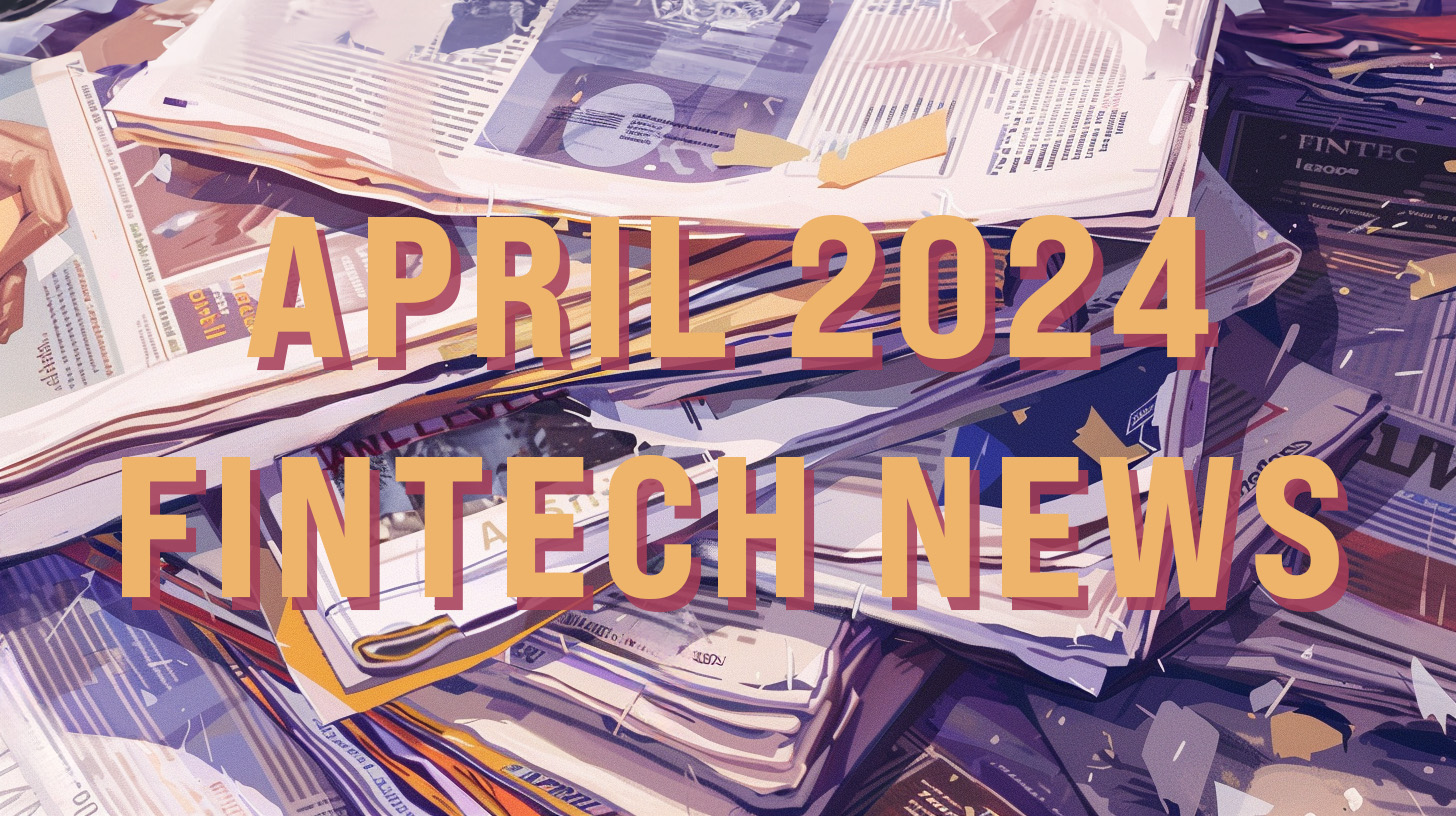
The Fintech News You Missed from Jan 2024
Feb 9, 2024 The Fintech News You Missed from Jan 2024
The payments industry is at a pivotal moment, marked by rapid advancements, regulatory shifts, and evolving consumer expectations. As we delve into the trends shaping this dynamic landscape, our focus is on the merchants and ecommerce business owners at the heart of the industry.
This post unpacks the top stories and happenings in fintech from January 2024, offering insights into how these developments could impact your business.
1. Spot Bitcoin ETF Approval: New Opportunities for Merchants Accepting Crypto
The recent approval of spot Bitcoin exchange-traded funds (ETFs) by the SEC marks a major milestone towards mainstream adoption of cryptocurrencies like Bitcoin and Ethereum. As these digital assets become more integrated into traditional finance, new opportunities arise for merchants to benefit from accepting crypto payments.
What are Spot Bitcoin ETFs?
Spot Bitcoin ETFs allow investors to gain direct exposure to the price of Bitcoin without having to personally hold the cryptocurrency. The ETF shares are traded on major stock exchanges, bringing Bitcoin into the world of regulated traditional investments right next to stocks and bonds.
Several major financial institutions like BlackRock and Fidelity have launched Bitcoin ETFs following approval by the SEC. This represents growing acceptance of crypto by mainstream finance.
Benefits for Merchants
For merchants, growing mainstream crypto adoption translates into concrete benefits from accepting payments in cryptocurrencies:
- Expanded customer base: With over 300 million crypto users globally, accepting Bitcoin or Ethereum opens up a new tech-savvy clientele with high purchasing power.
- Enhanced payment security: Cryptocurrency transactions don’t store sensitive customer data that can be compromised. This reduces fraud risk for merchants.
- Faster settlement: Cryptocurrency payments can settle faster than credit card payments or bank transfers, improving cash flows for merchants.
- Lower fees: Cryptocurrency transaction fees are typically lower compared to fees charged by credit card processors and other payment services.
2. Simplifying B2B Travel Payments with Virtual Cards
The current systems for B2B payments in travel can be slow, opaque, and risky in terms of fraud. To address these pain points, Mastercard recently announced an enhanced collaboration with Booking.com, the world’s leading digital travel platform.
The partnership focuses on accelerating the use of Mastercard virtual cards to streamline B2B travel payments.
How Virtual Cards Simplify B2B Travel Payments
A virtual card is a digital payment method generated specifically for small business use cases like supplier payouts. Virtual cards provide a unique, traceable link between a booking and the associated payments to third-party travel suppliers.
Key benefits of using virtual cards for B2B commercial banking include:
- Enhanced visibility: Travel partners can easily track and reconcile payments, with automated reconciliation against bookings.
- Improved security: Virtual cards carry 30 times lower fraud risk than traditional payment cards.
- More flexibility: Benefits like flexible pricing, financing options, and payment guarantees simplify finances.
- Better analytics: Data insights help travel companies understand supplier relationships and consumer spending patterns.
By adopting virtual card-based tools for B2B payments, Booking.com aims to reduce financial friction for travel industry players. Partners like accommodation providers, car rental firms, and travel experience operators can all achieve more transparent, secure and seamless payments.
We’re eager to see how American Express and Visa will react in the coming months.
3. Real-Time Money Movement: Faster Settlement for Merchants
While still a small portion of overall payment volume, real-time money movement (RTMM) solutions are gaining traction globally. RTMM allows near-instantaneous transfer and settlement of funds between parties, including merchants and consumers.
As more businesses and consumers demand faster, seamless digital payments, RTMM is poised to grow exponentially. By 2027 over 50% of payment transactions worldwide could occur in real-time, a threefold increase from current levels.
What is Real-Time Money Movement?
RTMM leverages latest technologies to facilitate immediate clearing and settlement of payments, without batch processing delays. This enables recipients to access funds seconds after a transaction. Essentially, its instant payments.
Domestic RTMM platforms are operational in several countries including India, Mexico, the UK, and the US. Efforts are also underway to connect national systems for cross-border, real-time global payments.
Benefits for Merchants
For merchants, adopting RTMM brings tangible advantages:
- Faster settlement – Merchants can receive customer payments into their accounts almost instantly, instead of waiting days. This improves cash flows.
- Enhanced liquidity – With quick access to incoming funds, merchants can readily reinvest and seize opportunities.
- Lower reconciliation costs – Transaction data moves seamlessly with payments, reducing manual reconciliation.
- Better customer experience – Fast payment confirmation improves experience and likelihood of repeat business.
4. Apple’s NFC Payments Shift
Apple has recently unlocked its Near Field Communication (NFC) technology to third-party payment services, a decision fueled by antitrust pressures from the European Commission. This move comes after allegations from 2022 accused Apple of monopolistic practices by restricting NFC access exclusively to its own payment system, Apple Pay.
By broadening NFC capabilities, Apple not only aims to dodge hefty fines potentially amounting to billions but also seeks to demonstrate its commitment to fostering a more competitive payments ecosystem.
What It Means for Merchants
For merchants and business owners, this opens up a new realm of possibilities for customer transactions, enabling them to offer a broader array of payment options. This could lead to improved customer satisfaction by providing more flexibility and convenience at checkout, potentially boosting sales and customer loyalty.
However, the path forward for Apple is laced with legal challenges. In the United States, the company now confronts a class-action lawsuit initiated by card issuers, arguing against the former NFC contactless exclusivity. This legal action underscores the growing scrutiny over big tech’s influence on financial transactions and market fairness.
Furthermore, the Consumer Financial Protection Bureau (CFPB) has expressed concerns over Apple’s NFC policy, indicating a broader regulatory interest in ensuring competitive practices in the digital payments space.
Apple’s concession signals a significant shift towards more open and interoperable payment systems. As regulatory bodies tighten oversight on tech giants to ensure fair competition, other companies may follow suit, leading to a more diverse and innovative market landscape.
5. AI Is Transforming the Payments Industry
Artificial intelligence (AI) and machine learning have become indispensable tools across many industries. The payments ecosystem is no exception, as AI unlocks new capabilities ranging from enhanced fraud detection to improved customer support.
AI Against Payments Fraud
Payments fraud causes tens of billions in losses annually across cards, online transactions, checks, and more. AI and machine learning are increasingly crucial weapons against scams and cybercrime. Sophisticated machine learning algorithms can review millions of transactions to detect subtle patterns indicating fraud. This enables dynamic responses stopping criminals in real-time before significant losses occur.
As AI models process more behavioral data, they become better at stopping ever-evolving fraudulent tactics. This makes AI critical for robust protection across payments platforms and touchpoints.
Smoother Customer Interactions
AI virtual assistants and chatbots are transforming customer service across banking and payments. Conversational AI interfaces provide 24/7 support addressing common queries on transactions, statements, disputes and more.
With machine learning, the virtual agents become more intuitive and helpful by analyzing real customer interactions. Streamlined self-service and personalized recommendations improve customer satisfaction.
Operational Efficiency Gains
AI delivers major cost savings via process automation across payment systems. Intelligent optical character recognition extracts data from forms and documents with high accuracy for digital processing. Natural language processing parses unstructured text and verbal communication, often better grasping context than humans.
These and other AI techniques eliminate tedious manual work so employees can focus on higher-value analysis and innovation. The result is leaner operations and more strategic decision-making powered by data insights.
6. Revolut Simplifies Cross-Border Payments with Digital Wallet
In a bold stride towards transforming global remittance, Revolut has unveiled its Mobile Wallets service, a groundbreaking initiative that streamlines the process of cross-border payments.
This development is particularly noteworthy as it promises to significantly enhance the efficiency of sending remittances by allowing users to transact using simple recipient identifiers such as names, phone numbers, or email addresses.
Right now, the service focuses on customers in the UK, Europe, Bangladesh, and Kenya. The ability to send payments directly to mobile wallets can reduce transaction times and costs, offering a competitive edge in markets that are increasingly reliant on digital payment solutions.
Revolut’s initiative is expected to have a ripple effect, potentially expanding to additional countries and further democratizing the process of remittances. This expansion could usher in a new era of financial inclusion, providing underbanked populations with more direct access to international funds. Moreover, by simplifying cross-border payments, Revolut is not just enhancing convenience but also fostering economic connections between disparate regions.
7. Upcoming 2024 Payments Industry Conferences
The payments landscape evolves rapidly, with new technologies, regulations, and consumer behaviors reshaping the industry yearly. For merchants and business owners, keeping up with the latest developments is essential yet can be challenging.
Industry conferences and trade shows provide unmatched opportunities to engage with the most cutting-edge innovations and trends in payments. By attending these major 2024 events, merchants can get a first-hand glimpse into the future while expanding their professional networks.
Key Payments Conferences in 2024
Some of the most prominent payments gatherings in 2024 that merchants should consider include:
- Money 20/20 (October, Las Vegas) – The world’s largest fintech event covering everything from digital currencies to open banking and AI.
- Smarter Faster Payments (May, Miami) – Nacha’s annual event focused on real-time payments, APIs, B2B transactions, and more.
- Payments MAGnified (February, Dallas) – The combined Merchant Advisory Group and Tech Forum conference for merchant acquiring trends.
- Fintech & Payments Summit (March, Las Vegas) – Discover innovations in merchant tech stacks, alternative payments, and commerce enablers.
8. Bank Mergers and Fintech Partnerships Now Face More Regulatory Attention
Banking regulators have been ramping up oversight of two key areas – bank mergers and fintech partnerships through banking-as-a-service (BaaS) models. After major enforcement actions in 2023, both these spheres can expect continued focus from agencies like the OCC and CFPB going into 2024.
Why More Scrutiny Now
A small group of BaaS-focused banks accounted for an outsized share of severe penalties last year around areas like lax consumer protection and anti-money laundering gaps. This revealed potential risks from fast-growing fintech relationships.
Similarly, current bank merger approval practices have faced criticism for lacking transparency and consistency. As consolidation continues, regulators want to ensure deals don’t undermine stability or competition.
What to Expect
In response, the OCC proposed codifying merger review standards instead of relying on precedent alone. This may lead to more scrutiny and longer timelines for merger approvals.
For fintech partnerships, no new rulemaking is imminent but oversight using existing authority will continue. Banks enabling fintech services will need robust compliance programs and controls.
Looking Ahead
While regulatory attention is increasing, demand continues to drive fintech partnership growth. Committed banks are making BaaS safer for sustainable collaborations. Merger activity may slow but still continues apace.
Institutions able to balance innovation and regulatory expectations can thrive in this new environment. But those taking compliance lightly risk severe penalties.
Anything We Missed?
Of course, there have been updates for consumers relating to digital banking and BNPL (Buy Now Pay Later) services.
Keep in mind, this list doesn’t constitute all fintech, payments industry, payment network, or financial services news. But maybe we missed something big that affects you! Let us know below in the comments.




